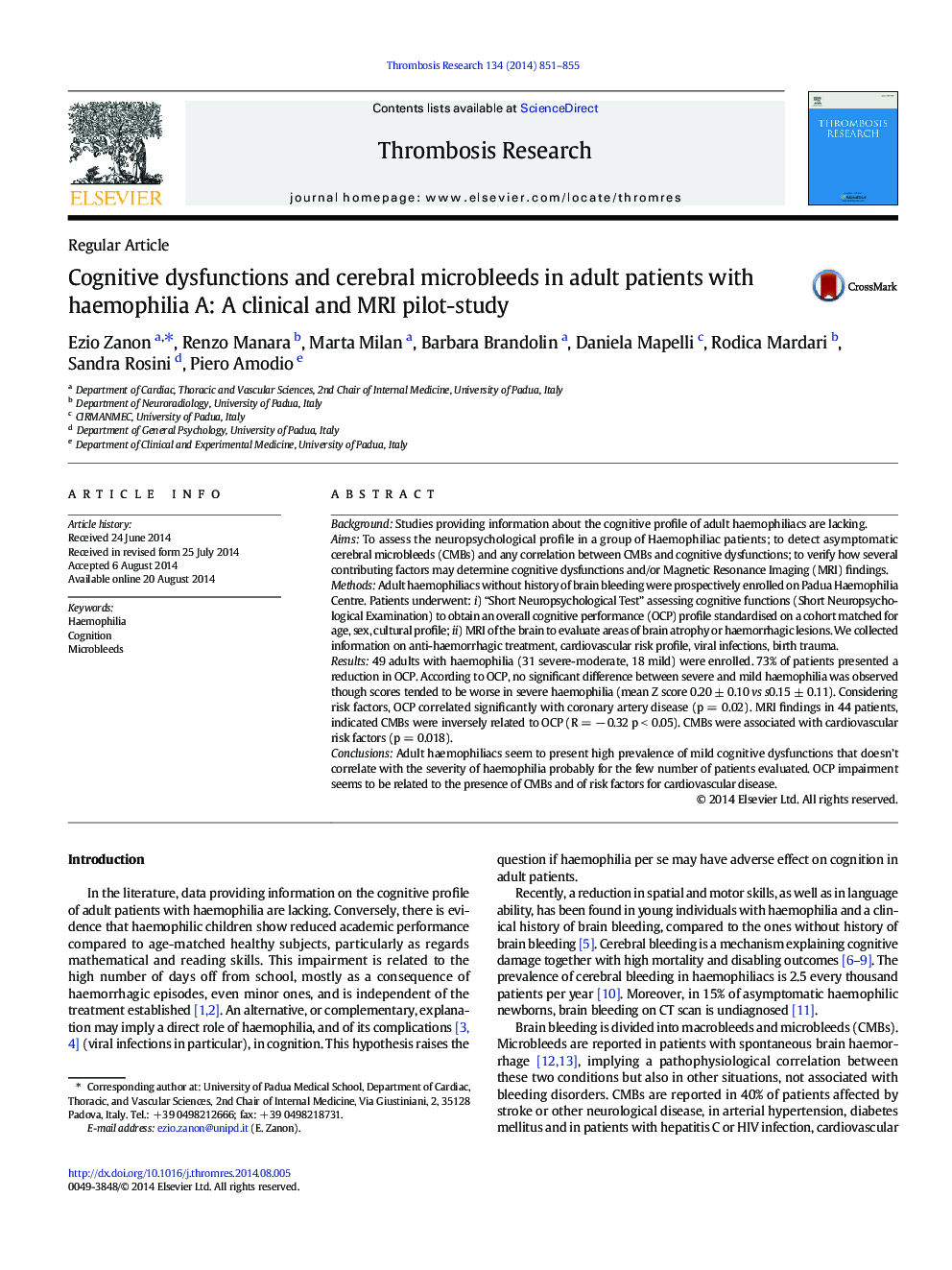| کد مقاله | کد نشریه | سال انتشار | مقاله انگلیسی | نسخه تمام متن |
|---|---|---|---|---|
| 6001094 | 1182944 | 2014 | 5 صفحه PDF | دانلود رایگان |

- Information on neurocognitive profile among Haemophilia A adult patients are lacking.
- Mild cognitive impairment was found in patients despite haemophilia-severity.
- Asymptomatic cerebral microbleeds were associated with reduced cognitive scores.
- A worse cognitive performance related to the presence of cardiovascular risk factors.
BackgroundStudies providing information about the cognitive profile of adult haemophiliacs are lacking.AimsTo assess the neuropsychological profile in a group of Haemophiliac patients; to detect asymptomatic cerebral microbleeds (CMBs) and any correlation between CMBs and cognitive dysfunctions; to verify how several contributing factors may determine cognitive dysfunctions and/or Magnetic Resonance Imaging (MRI) findings.MethodsAdult haemophiliacs without history of brain bleeding were prospectively enrolled on Padua Haemophilia Centre. Patients underwent: i) “Short Neuropsychological Test” assessing cognitive functions (Short Neuropsychological Examination) to obtain an overall cognitive performance (OCP) profile standardised on a cohort matched for age, sex, cultural profile; ii) MRI of the brain to evaluate areas of brain atrophy or haemorrhagic lesions. We collected information on anti-haemorrhagic treatment, cardiovascular risk profile, viral infections, birth trauma.Results49 adults with haemophilia (31 severe-moderate, 18 mild) were enrolled. 73% of patients presented a reduction in OCP. According to OCP, no significant difference between severe and mild haemophilia was observed though scores tended to be worse in severe haemophilia (mean Z score 0.20 ± 0.10 vs s0.15 ± 0.11). Considering risk factors, OCP correlated significantly with coronary artery disease (p = 0.02). MRI findings in 44 patients, indicated CMBs were inversely related to OCP (R = â 0.32 p < 0.05). CMBs were associated with cardiovascular risk factors (p = 0.018).ConclusionsAdult haemophiliacs seem to present high prevalence of mild cognitive dysfunctions that doesn't correlate with the severity of haemophilia probably for the few number of patients evaluated. OCP impairment seems to be related to the presence of CMBs and of risk factors for cardiovascular disease.
Journal: Thrombosis Research - Volume 134, Issue 4, October 2014, Pages 851-855